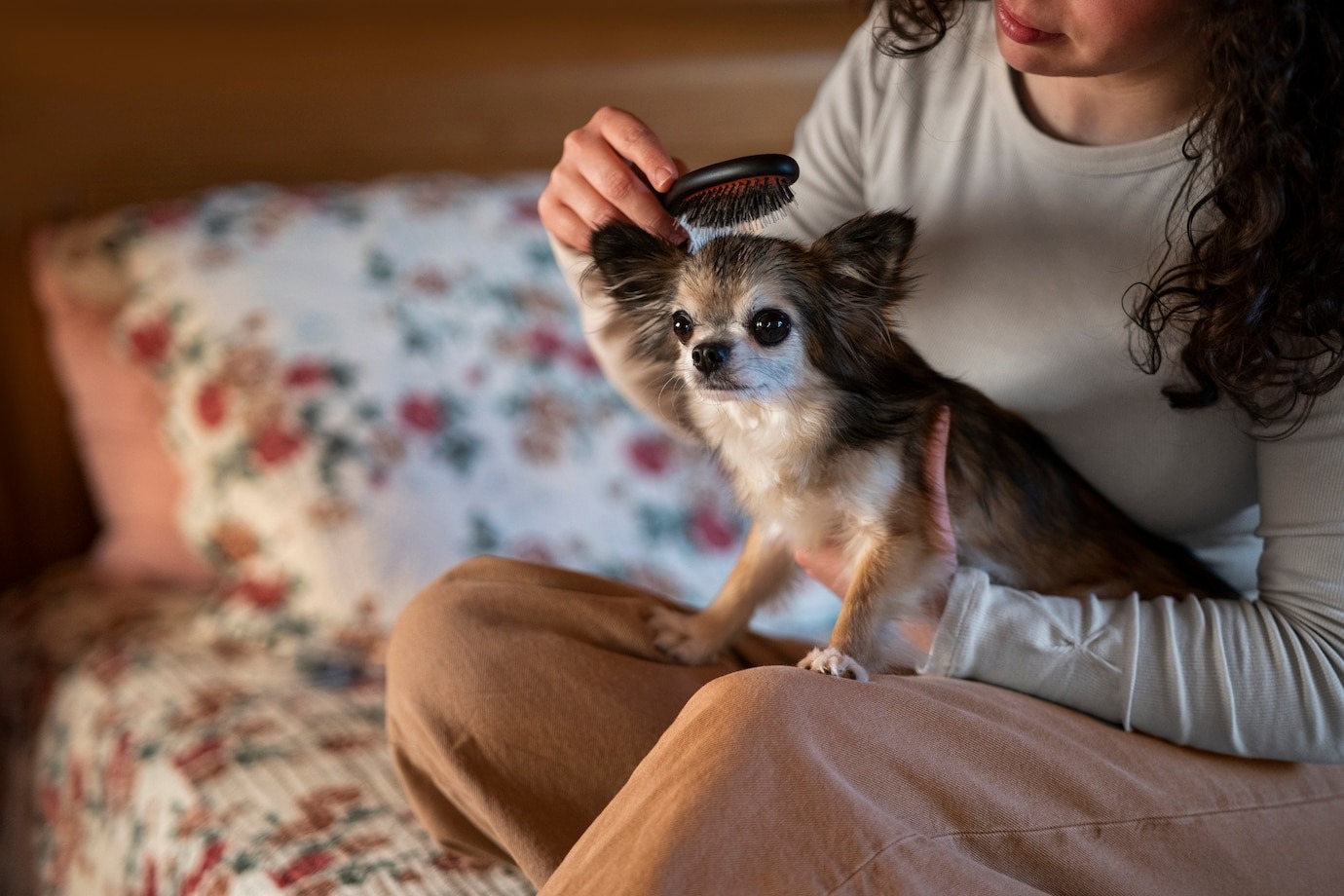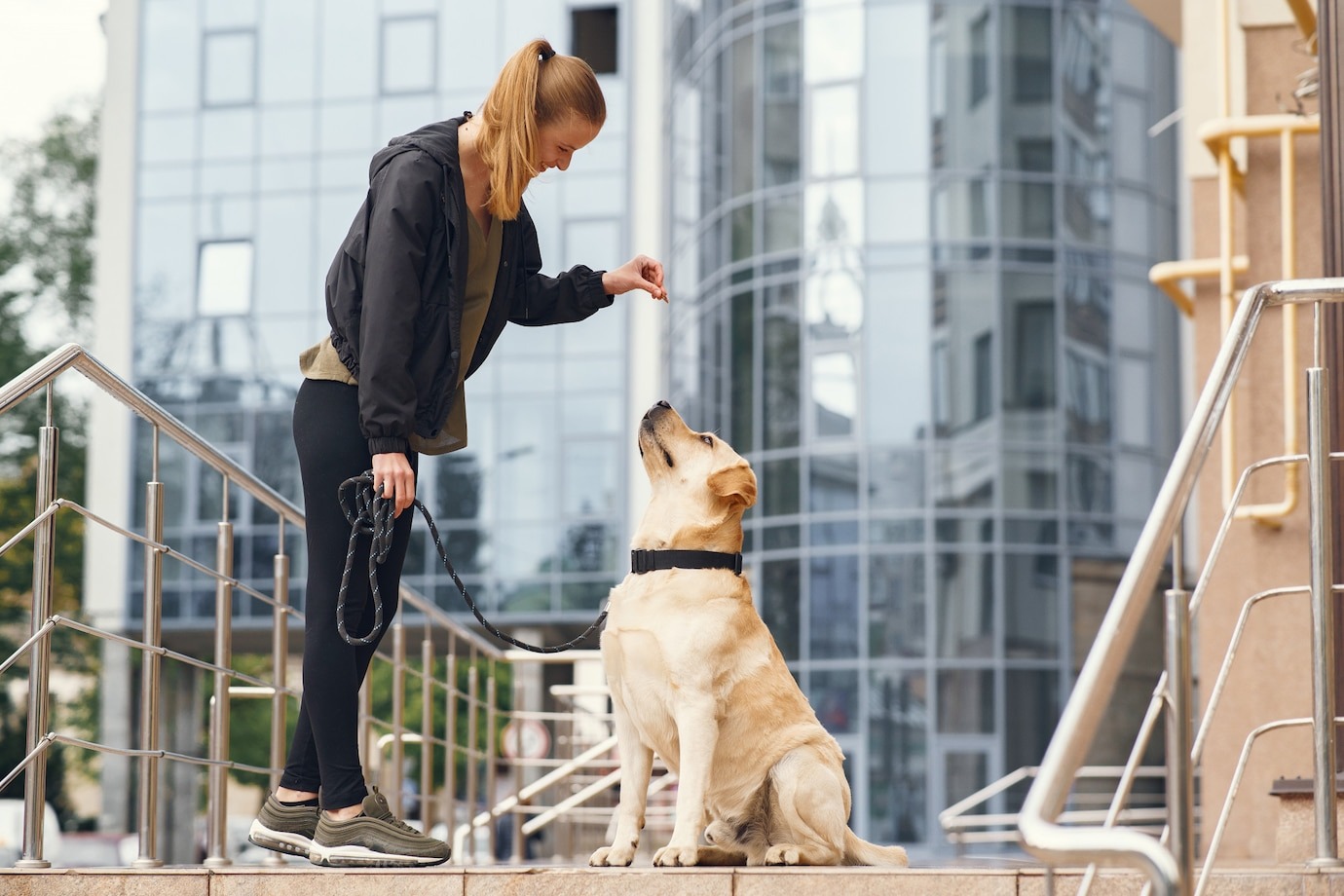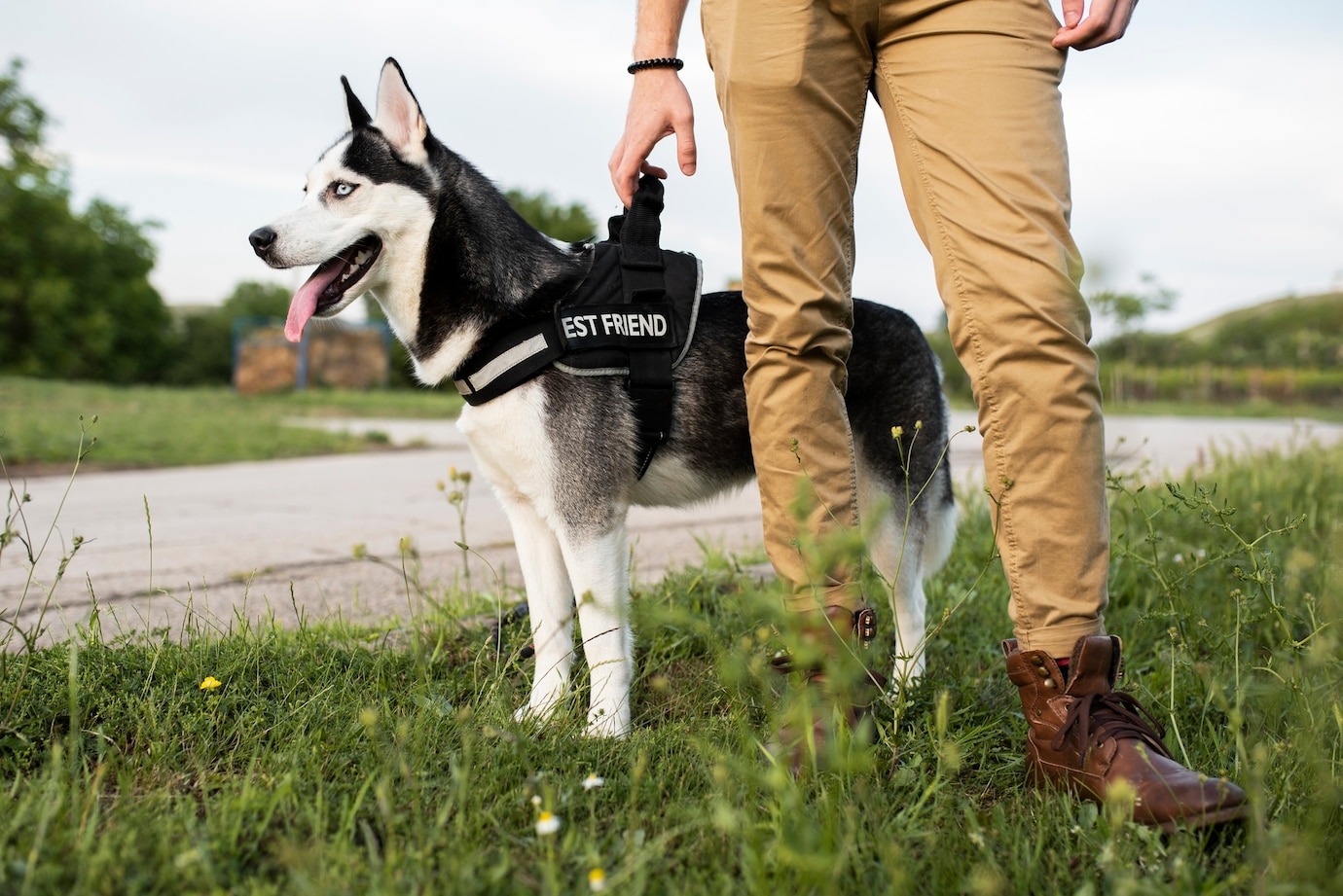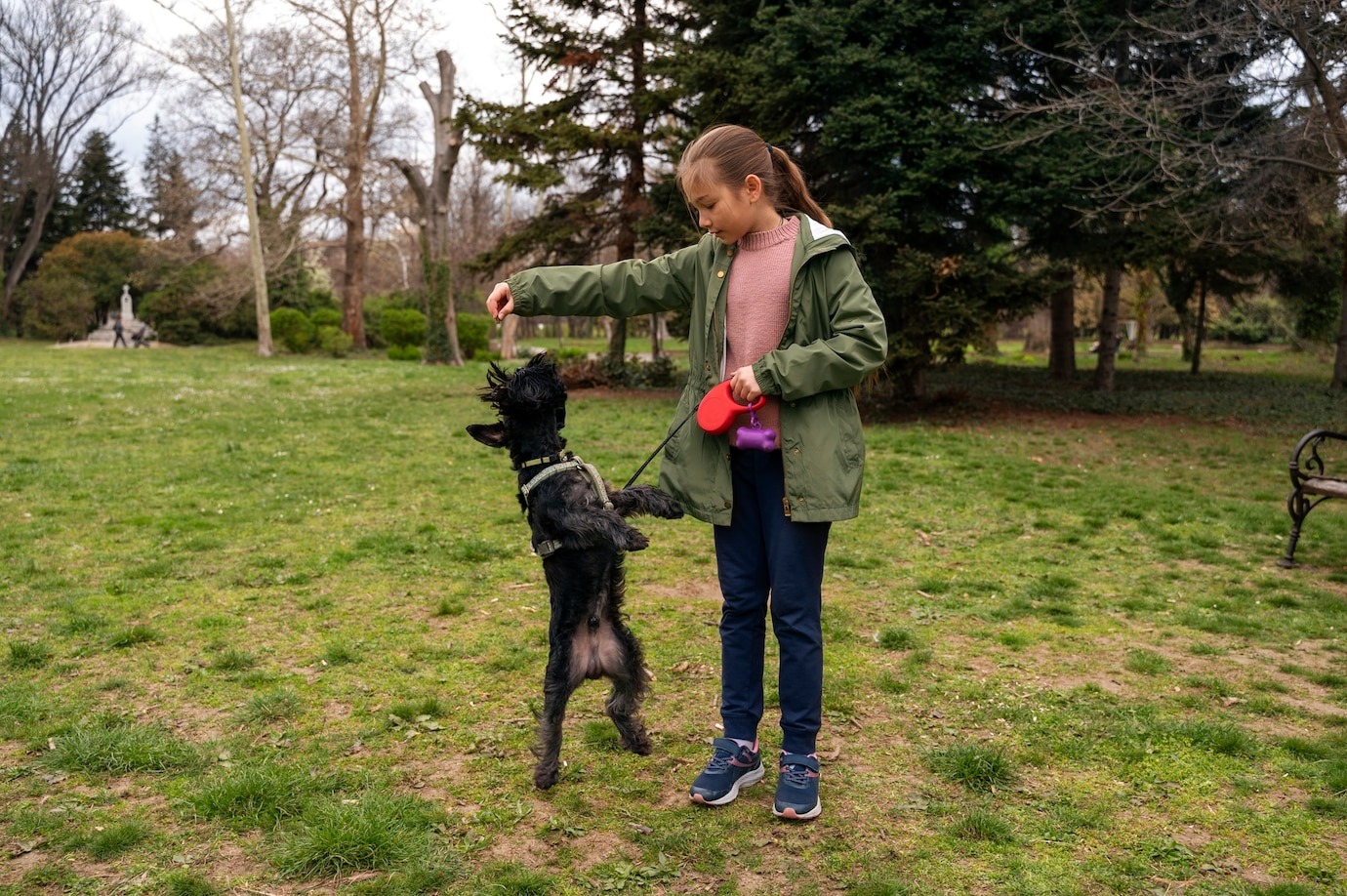Puppy training is exciting yet challenging for any K9 handler or dog owner. As many k9 puppy training reviews attest, these furry companions are intelligent and eager to learn, but they also come with unique challenges. Training a K9 puppy requires patience, consistency, and a deep understanding of their unique needs, from short attention spans to stubborn behaviors. In this comprehensive guide, we'll explore some of the most common challenges faced during K9 puppy training and provide practical solutions to help you overcome them based on insights from k9 puppy training reviews.
Common Challenges in K9 Puppy Training
- Short Attention Spans: As highlighted in many K9 puppy training reviews, one of the biggest hurdles in training K9 puppies is their naturally short attention spans. These energetic bundles of fur can quickly become distracted by the slightest sound, movement, or scent, making maintaining focus during training sessions challenging. This can lead to frustration for both the handler and the puppy, hindering progress.
- Biting and Nipping: According to K9 puppy training reviews, puppies explore their world through their mouths, and biting or nipping is a natural behavior. However, this behavior can be problematic, especially during training sessions, as it can be disruptive and dangerous if not appropriately addressed.
- Potty Training Setbacks: Housetraining is a crucial aspect of puppy training, but k9 puppy training reviews often mention that it can be slow and frustrating. Accidents and setbacks are common, and it's essential to have a consistent potty training routine in place to help your K9 puppy learn where and when it's appropriate to relieve themselves.
- Jumping and Pulling on the Leash: Many K9 puppy training reviews highlight the challenges of dealing with puppies' abundance of energy, which can manifest in behaviors like jumping and pulling on the leash during walks or training sessions. These behaviors can be dangerous, leading to injury or loss of control and disrupting the training process.
- Fear and Anxiety: K9 puppies, like any other puppies, can experience fear and anxiety, especially in new or unfamiliar situations, as noted in numerous k9 puppy training reviews. This can make them reluctant to engage in training exercises or follow commands, hindering their progress and potentially leading to behavioral issues.
Other Related Links - https://www.justiceforleia.com/blog/everything-to-know-before-teaching-your-dog/
Solutions and Tips for Overcoming Training Challenges
- Building a Strong Foundation with Positive Reinforcement: Many K9 puppy training reviews recommend positive reinforcement as a powerful tool. By rewarding desired behaviors with treats, praise, or play, you can help reinforce good habits and strengthen the bond between you and your puppy. This approach encourages learning and builds trust and confidence in the training process.
- Implementing Short, Frequent Training Sessions: K9 puppy training reviews often suggest keeping training sessions short and frequent to combat short attention spans. Aim for multiple, brief sessions throughout the day rather than one long session. This approach lets your puppy stay focused and engaged while preventing them from becoming overwhelmed or bored.
- Redirecting Biting and Nipping: When your K9 puppy starts biting or nipping, k9 puppy training reviews advise redirecting their behavior immediately. Provide them with appropriate chew toys or engage them in a game or training exercise to redirect their energy positively. Consistency and patience are key when addressing this behavior.
- Crate Training and Consistent Potty Breaks: Many k9 puppy training reviews recommend crate training as an effective tool for housetraining your K9 puppy. By creating a consistent routine with frequent potty breaks and rewarding them for going potty in the designated area, you can help reinforce good habits and minimize accidents. Remember never to use the crate as a punishment, which can lead to negative associations and further setbacks.
- Leash Training and Teaching Impulse Control: To address issues like jumping and pulling on the leash, k9 puppy training reviews emphasize the importance of leash training and impulse control exercises. Teach your puppy to walk calmly on a loose leash and reward them for maintaining focus and following commands. Gradually increase the level of distraction during training sessions to help reinforce these behaviors in various environments.
- Desensitization and Counter-Conditioning: Considerable K9 puppy training reviews suggest that fear and anxiety can be addressed through desensitization and counter-conditioning techniques. Slowly expose your K9 puppy to the stimuli or situations that trigger their fear or anxiety while simultaneously providing positive reinforcement, such as treats or praise. This process helps them associate previously fearful stimuli with positive experiences, reducing their anxiety over time.
Additional Tips for Successful K9 Puppy Training
- Socialization and Exposure: K9 puppy training reviews consistently accentuate the importance of proper socialization, as it helps puppies develop confidence, adaptability, and appropriate social skills. Expose them to a variety of people, animals, and environments in a controlled and positive manner. This will help them become well-rounded and better equipped to handle situations they may encounter in their future roles.
- Consistency and Clear Communication: Consistency is critical when training any dog, and k9 puppy training reviews stress its significance, especially for K9 puppies. Ensure all handlers involved in the training process use the same commands, cues, and techniques. Clear communication and a unified approach will help your puppy understand what is expected of them and minimize confusion.
- Exercise and Mental Stimulation: K9 puppies are brilliant and energetic, and k9 puppy training reviews recommend incorporating regular exercise and mental stimulation into their routine. This includes physical exercise, playtime, and interactive toys and puzzles that challenge their minds. A well-exercised and mentally stimulated puppy will be more focused and receptive during training sessions.
- Professional Help and Resources: If you're facing persistent challenges or behavioral issues with your K9 puppy, many k9 puppy training reviews advise seeking professional help. Consult with experienced trainers, veterinarians, or behaviorists who specialize in working with K9s. They can provide valuable insights, guidance, and personalized training plans to help you overcome specific obstacles.
- Patience and Persistence: Puppy training is a journey, and k9 puppy training reviews often remind readers that progress takes time and consistency. Celebrate small victories and milestones along the way, and don't get discouraged by setbacks. With patience, persistence, and a positive attitude, you can overcome challenges and help your K9 puppy reach their full potential.
Transform Your K9 Puppy into a Star Performer
As countless k9 puppy training reviews demonstrate, training a K9 puppy is a rewarding but demanding endeavor, filled with unique challenges and obstacles. From short attention spans and biting behaviors to potty training setbacks and fear and anxiety, these furry companions can test even the most experienced handlers. However, you can overcome these challenges by implementing positive reinforcement techniques, consistent routines, specialized training methods, and fostering a strong, trusting relationship with your K9 puppy.
Remember, every puppy is an individual, and k9 puppy training reviews emphasize the importance of tailoring your approach to their specific needs and temperament.
Seek professional guidance when necessary, and always appreciate the power of patience, persistence, and a positive mindset.
With dedication and the right strategies, you can navigate the training troubles and unlock your K9 companion's full potential, ensuring their success in their future roles and responsibilities.






